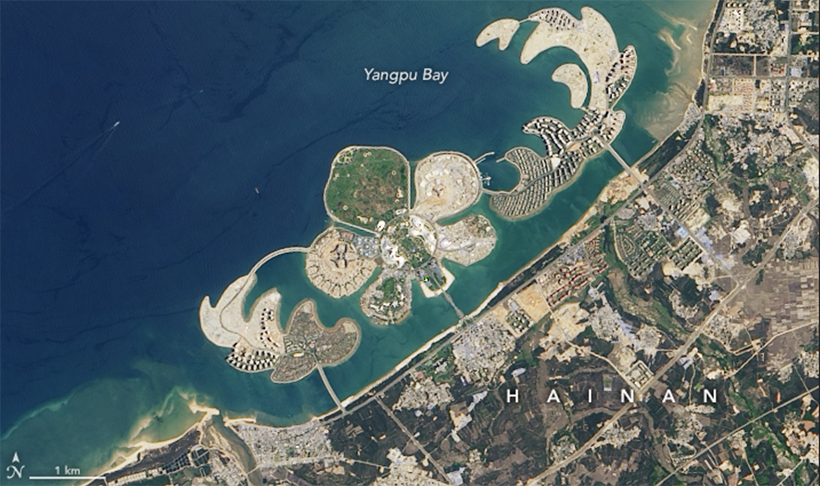China’s Evergrande Group agrees to demolish 39 apartment blocks on Hainan Island

China’s Evergrande property mess just became a whole lot worse. Now shares in the indebted property group have been suspended after the developer was told to demolish 39 buildings in Hainan, the island off the southern coast of China in the South China Sea.
To be clear, that is a demolition order for 39 under-construction buildings that have been built over the past 8 years at a huge resort-style development at the Ocean Flower Island project. The project was being constructed on the largest man-made island in the world, eclipsing anything being built in the Middle East, including the Palm Islands off Dubai.
Evergrande confirmed late on Monday, China time, that the property developer had received an order from Danzhou city authorities at the end of December to demolish the 39 condo towers.
Chinese media reports that building permits for the luxury development had been “illegally obtained”. The buildings cover 435,000 square metres.
Last November it was reported that authorities in Danzhou city had refused Evergrande’s plan to partially repay ongoing debts with contractors and suppliers for the project by offering them properties in the development.
The Evergrande Group is struggling to repay more than US$300 billion in liabilities, including nearly US$20 billion of international market bonds after it missed a series of payment deadlines in the second half of last year. The almost certain collapse of the group, in the largest property market in the world, could reverberate in world financial markets for years to come.
Evergrande, just one of many debt-stressed Chinese property developers, missed new coupon payments valued atUS $255 million which fell due last Tuesday (although there is a 30 day grace period for this payment). The Group has made no official statement about the matter.
The deepening liquidity squeeze saw the property developer shed 89% of its value during 2021. Nad the parent company’s electric vehicle division, China Evergrande New Energy Vehicle Group and their ‘Hengchi’ brand, dropped another 10% in early trading yesterday as contagion from the developer ricocheted around local markets.
Other developers at risk of default include Kaisa, which has lost 75% in value in the past year. A stress test of the Chinese property market rated by Fitch Ratings indicates potential liquidity strain for up to a third of the country’s real estate portfolio which could see a 30% decline in residential home sales revenue this year. The ratings agency also expects a knock-on effect for related industries, including construction, engineering and commodities.
Shares in Sunac China Holdings and Shimao Group Holdings plunged more than 10% following the news in yesterday’s trading. Fitch Ratings also estimates that a third of Chinese property developers could face a liquidity crunch during 2022.
Today the Evergrande Group announced that it will abide by the orders to tear down 39 structures on its flagship property project on Hainan Island.
Evergrande is not the only Chinese property developer engulfed by a liquidity crisis. Altogether the sector owes $19.8bn in US dollar-denominated offshore debt in the first three months of 2022, analysts at Nomura said last month. In the second quarter of this year, they must find another $18.5bn, while also meeting billions of repayments in local yuan debt.
Other developers at risk of default include Kaisa, which missed a huge repayment in December and which has twice suspended its shares in recent months. Its stock has lost 75% in value in the past year.
Analysts at S&P have estimated that one-third of Chinese developers could face a liquidity crunch in the next 12 months.
According to the SCMP, the Shenzhen-based developer will tear down 39 buildings on Island #2 of its Ocean Flower project in the Yangpu Bay according to a statement to the Hong Kong stock exchange.
SOURCES: Reuters | SCMP | Bloomberg
Latest Thailand News
Follow The Thaiger on Google News:


























